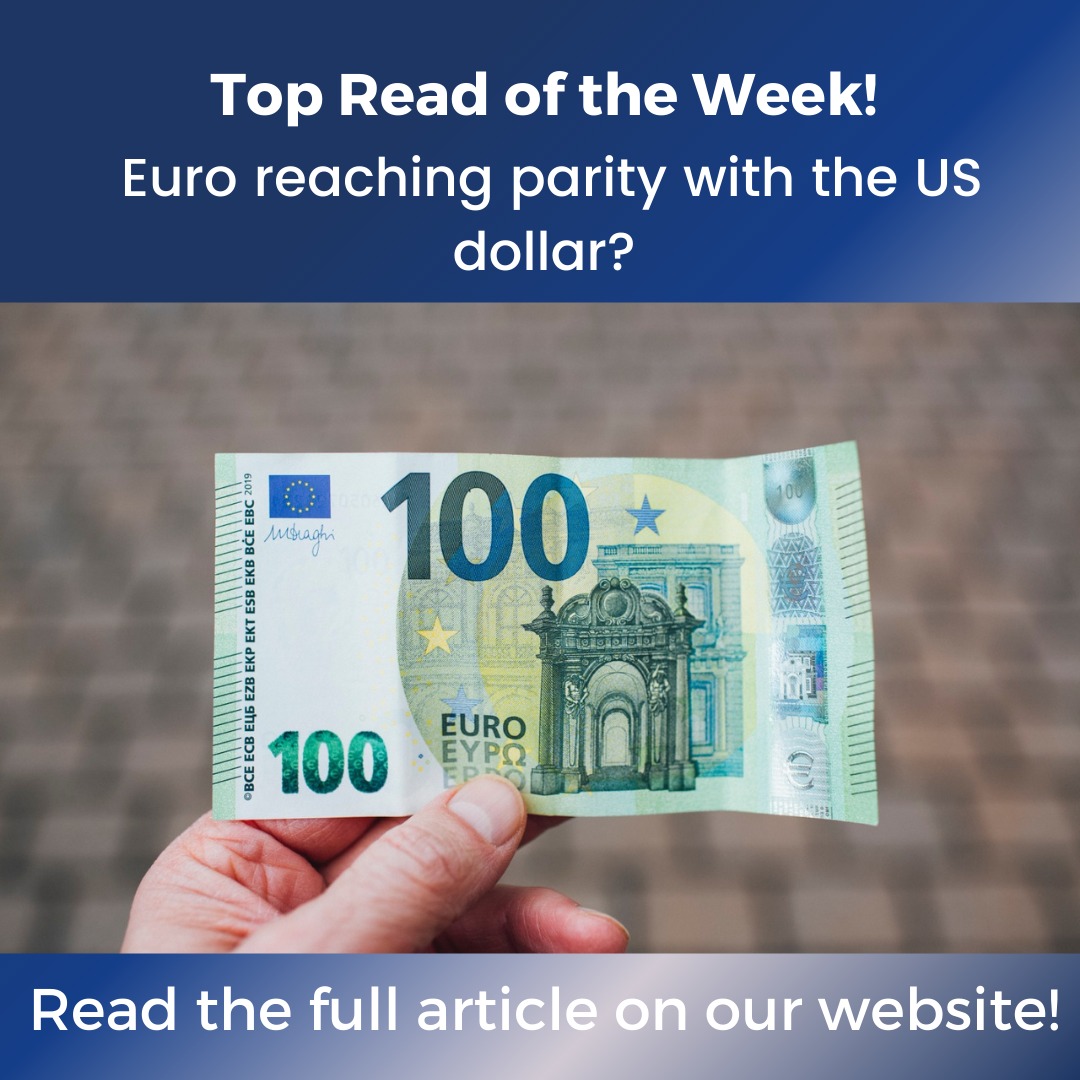Articles
It Will Be Difficult for The Euro to Avoid Parity
The war in Ukraine had just begun, leading to gas supply cuts in the region. The European Central Bank had begun its tightening campaign, and investors were worried that rising interest rates could push debt-laden Italy to the brink.

It’s been less than a year since one euro was equivalent to one dollar, and the market is once again speculating about the common currency’s decline to this level.
Over the past two weeks alone, analysts at companies including Nomura International Plc, Rabobank, and ING Groep NV have slightly lowered their forecasts to just under one dollar. The term “parity” has seen increased search activity on Google, and the odds of the euro reaching this level by early next year have doubled.
Much of the pessimism is related to rapidly rising U.S. bond yields, which are boosting the dollar. However, significant domestic factors are also at play. Growth in the eurozone’s largest economies remains slow, concerns about Italy’s inflated government debt burdens are resurfacing, and rising energy prices are reviving inflation fears.
Jordan Rochester, a foreign exchange strategist at Nomura Bank, said that if oil prices rise above $110 per barrel, “it will be difficult for the euro to avoid parity.” Current U.S. interest rate levels suggest that the euro should already be at $1.01 to $1.03.
The currency was trading around $1.06 on Friday. Rochester recently adjusted his euro forecast to $1.02 by year-end from $1.06.
When the euro fell to one dollar last year - for the first time in over two decades - Europe was reeling. The war in Ukraine had just begun, leading to gas supply cuts in the region. The European Central Bank had begun its tightening campaign, and investors were worried that rising interest rates could push debt-laden Italy to the brink.
Although much has changed since then, the euro’s decline shows how bleak the picture is, especially now that sharper borrowing costs have seeped into the economy. The unified currency has fallen about 6% from a peak of $1.13 in July.
However, the longer the euro remains weak, the greater the risk of fueling inflation. While the European Central Bank does not have a currency target, it usually monitors the foreign exchange market, aware of its potential impact on consumer prices.

